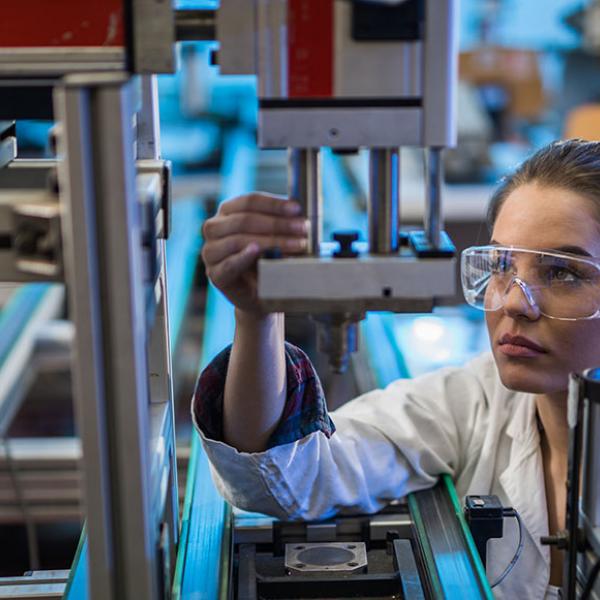BlueScope, one of the world’s leading manufacturers of innovative painted and coated steel products, has provided an intractable and widespread industry problem to students participating in ANSTO’s National Graduate Innovation Forum.
The project challenges the students to devise a practical solution to reduce or eliminate the risk of corrosion arising from the use of incompatible metal fasteners with steel products.
In a corrosive environment, two different metals in contact with each other will cause one of the metals to deteriorate more quickly due to a process known as dissimilar-metal corrosion.
“Traditionally, zinc-coated fasteners are used to affix coated steel products, which are compatible with the protective coatings that are applied to steel. But the fasteners do not have the same performance as premium coated products. If there is a corrosive influence, such as the ocean, the fasteners can become vulnerable if poorly specified and installed,” explained Jason Hodges, Open Innovation and Intellectual Property Manager, BlueScope - Australian Steel Products.
“While stainless steel can offer excellent corrosion resistance, when it is electrically coupled with a different metal you have a potential problem, due to dissimilar-metal corrosion.”
“People sometimes think that because it is a stainless steel fastener, that it won’t rust. They are not always aware it can lead to other problems that may shorten the life of the component if used in the wrong place in the wrong way. The students have been challenged to find a way to overcome dissimilar-metal corrosion and enable the use of stainless steel fasteners resulting in greater durability”.
“The challenge itself is incredibly specific but has widespread application throughout the sector.
“This is not an unploughed field; however, having some young smart new minds to consider how to reduce or eliminate the galvanic coupling may yield new approaches to tackle it,” said Hodges.
Although BlueScope has its own well-established and highly competent R&D support team, the company sees the value of having an external team of young researchers exploring the problem in depth.
Hodges said they were really impressed by the calibre of the students.
“If something comes out of this that was interesting and had some promise, we would be prepared to consider the next phase of development.”
The Graduate Innovation Forum has been developed by ANSTO, the Australian Institute of Nuclear Science and Engineering (AINSE) and the Australian Council of Deans of Science (ACDS).
Final team presentations to industry partners takes place on 10 November.

